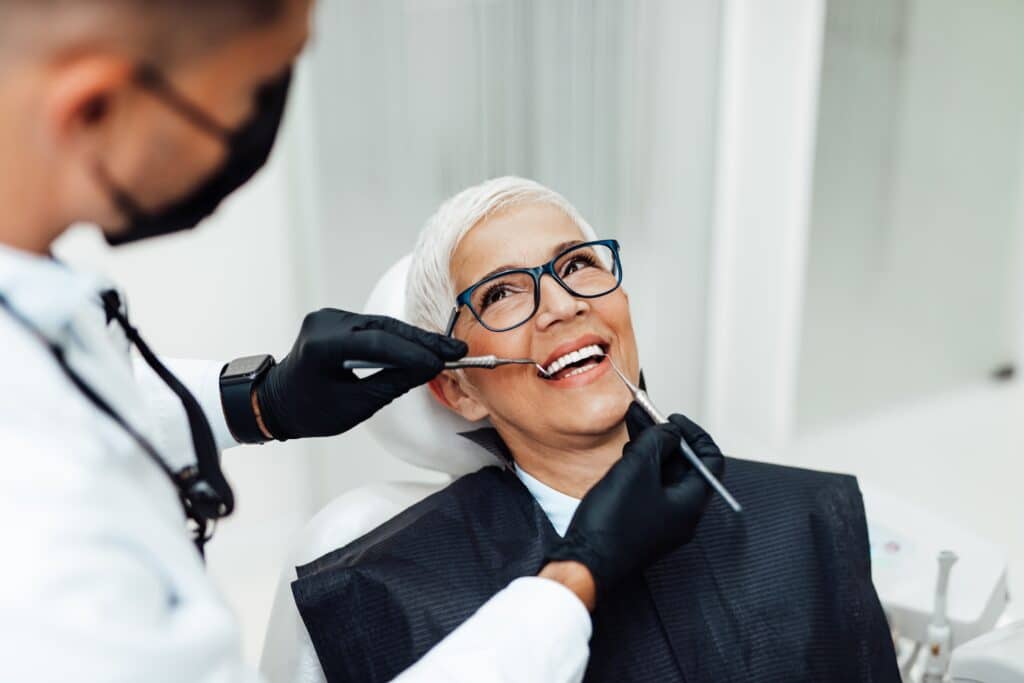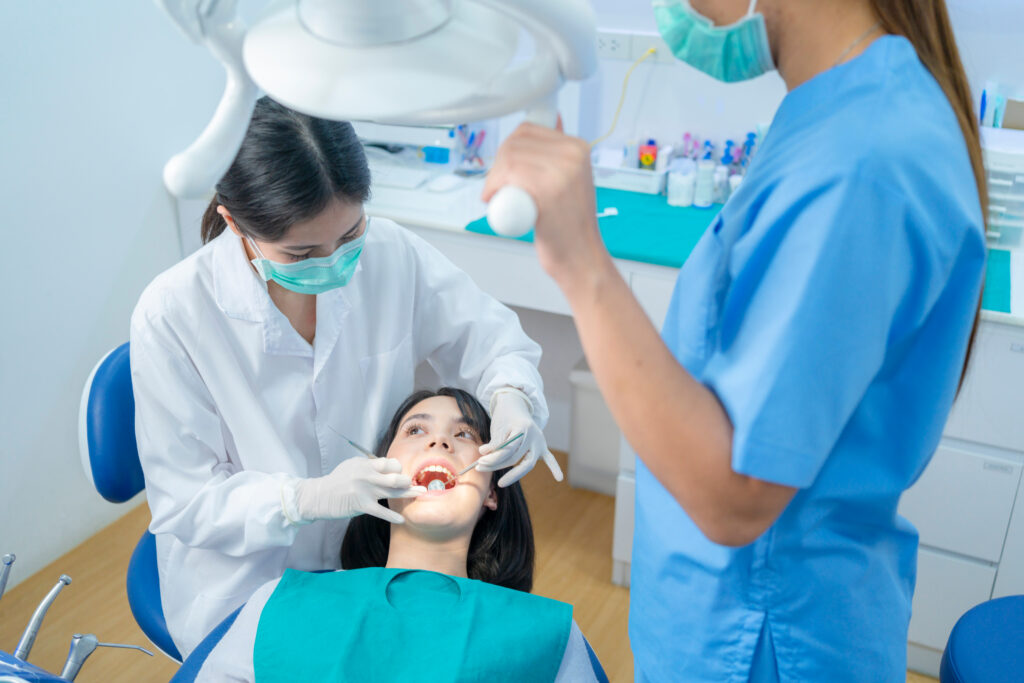Dentists extract teeth for a variety of reasons. A crowded bite, an infected tooth, periodontitis (gum disease), or an impacted tooth all necessitate surgery of permanent teeth. The most common threat to you if you have just undergone tooth extraction is “dry socket.“ A protective healing blood clot develops on the extraction site that if dislodged, exposes the underlying bone and nerves. This results in intense pain and inflammation as food debris fills the socket. However, there are set do’s and don’ts to ensure you heal normally.
Do’s And Don’ts After Tooth Extraction
What you should do
Unfortunately, the recovery period after getting your tooth removed is often more painful than the actual extraction. By following these tips, you will encourage your body to heal properly and help you feel better faster.
Control bleeding
Bite on the gauze provided to you after the surgery to put pressure on the socket. This helps to encourage clot formation. Remember to replace the gauze every few hours, or substitute it with a teabag in case the bleeding is heavy. In fact, tannic acid found in tea hastens the clotting process.
Eat the appropriate food and drink water regularly
Slowly reintroduce your mouth to solid foods days after tooth extraction. You can reintroduce foods as you feel more comfortable chewing. However, avoid hot foods. Instead, start with cool, soft foods like pudding and yogurt. Eat foods that are easy to chew, like oatmeal, pancakes, and brothy soups lukewarm– not hot.
Make use of painkillers and compresses
Take your medicines as prescribed, and apply ice to the affected area (10 minutes at a time) to mitigate swelling. Follow your doctor’s recommendations and avoid driving or anything potentially dangerous while on medication.
Remember your dentist’s contact number
If there are any complications that arise from your surgery, don’t be afraid to call or message your doctor. You may find that the pain around the socket worsens, or the bleeding continues (or increases). Or you might have adverse reactions to your prescriptions such as rashes. You may also start feeling feverish or have chills, which is a common sign of infection.
Keep brushing your teeth
Avoid the extraction site the day after the surgery, and brush with soft, circular movements to prevent irritating the gums. You may rinse your mouth with a solution of salt and warm water to target the extraction site without directly hitting it with the toothbrush bristles. If you required stitches for your surgery, your doctor may prescribe you an antibacterial 0.12% chlorhexidine solution to rinse once in the morning and again in the evening. For most extractions, you can return to regular brushing and flossing within a week. This is important to help your mouth heal faster and reduce the risk of bacterial growth.
What to avoid
The last thing you want after getting your tooth extracted is a prolonged and painful recovery process. Listed below are some of the things you should not do while you’re still healing.
Inflame the gums
Generally, do not try to drink from a straw for the first 24 hours after the extraction. Also, avoid smoking, which can break down the blood clot and cause pain. It is recommended that you avoid alcohol until you’re off prescription pain medicine and for at least a day after the surgery. Avoid eating crunchy, chewy, or brittle foods like chips or nuts. Avoid irritating, spicy foods. If you are struggling to chew meat, derive protein from vegetable or dairy sources.
Make unnecessary movements
Do not rinse or spit for at least 24 hours after the surgery so as to not dislodge the clot that forms in the tooth socket. Take a break from working or exercising for the next few days to speed the healing process and minimize the pain that comes with surgery.
Take the wrong medicine
Consult your doctor before taking any painkillers. Aspirin is a blood thinner and will delay clot formation in your tooth socket. Some studies also link oral contraceptives to a heightened risk for dry sockets.
Regency Family Dentistry Omaha | Best Omaha Dentist near Westroads Mall in Regency
Whether your teeth needs are a:
- complete exam and cleaning,
- full-mouth restoration
- or anything in between
We promise to provide you with exceptional care as we enhance the natural beauty of your smile. Below are just some of the many procedures and dental services we regularly provide to our patients – with a gentle touch, and stunning results. Your smile is our first priority, and we’ll give you something to smile about.
Preventative Dentistry
- Dental Exams
- Dental Cleanings
- Oral Cancer Exam
- Fluoride Treatment
- Sealants
- Dental X-Rays
- Home Care
- Nightguards & Mouthguards
Cosmetic Dentistry
- Dental Implants
- Composite Fillings
- Porcelain Crowns
- FixedPorcelain Bridges
- Porcelain Veneers
- Tooth Whitening
Periodontal Disease
- What is Periodontal (Gum) Disease?
- Diagnosis
- Treatment
- Maintenance
Restorative Dentistry
- Dental Implants
- Inlay Restorations
- Onlay Restorations
- Composite Fillings
- Crowns
- Dentures & Partial Dentures
- Fixed Bridges
- Root Canal Therapy
Oral Surgery
- Wisdom Teeth Extractions



